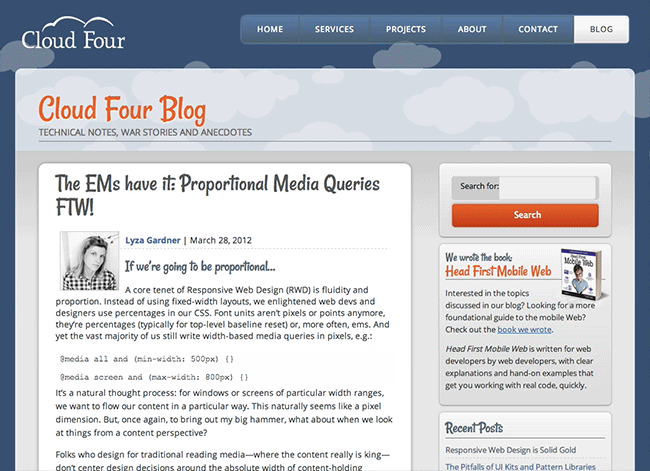Browse
No Preview Available
Opportunity with twitter link in description
Twitter short
https://x.com/slater57649/status/1949539369649402124
Read more

By: Anne Miller vijayalaxmi Santosh ...
Due Date: Aug, 29, 2025
Agri-food systems
+7
Leave a comment
No Preview Available
Opportunity with YT shorts in description
Opportunity with YT shorts in the description
Read more

By: Anne Miller vijayalaxmi Santosh ...
Due Date: Aug, 31, 2025
Agri-food systems
+7
Leave a comment
No Preview Available
Opportunity with Facebook link
Opportunity with Facebook link
https://www.facebook.com/share/v/16uoyPt5iZ/
Read more

By: Anne Miller vijayalaxmi Santosh ...
Due Date: Aug, 29, 2025
Agri-food systems
+7
Leave a comment

No Preview Available
It would be nearly impossible for businesses to design for each and every individual device. Instead
It would be nearly impossible for businesses to design for each and every individual device. Instead, when programming responsive designs, developers often:
Group the styling into the most typical device sizes for phones, tablets, and desktops. In this case, anything larger than 7 inches is usually displayed at desktop resolution or-
Use breakpoints (defined pixel widths that the display will adjust layout based on screen size) dependent upon the design and layout
It would be nearly impossible for businesses to design for each and every individual device. Instead, when programming responsive designs, developers often:
Group the styling into the most typical device sizes for phones, tablets, and desktops. In this case, anything larger than 7 inches is usually displayed at desktop resolution or-
Use breakpoints (defined pixel widths that the display will adjust layout based on screen size) dependent upon the design and layout
It would be nearly impossible for businesses to design for each and every individual device. Instead, when programming responsive designs, developers often:
Group the styling into the most typical device sizes for phones, tablets, and desktops. In this case, anything larger than 7 inches is usually displayed at desktop resolution or-
Use breakpoints (defined pixel widths that the display will adjust layout based on screen size) dependent upon the design and layout
It would be nearly impossible for businesses to design for each and every individual device. Instead, when programming responsive designs, developers often:
Group the styling into the most typical device sizes for phones, tablets, and desktops. In this case, anything larger than 7 inches is usually displayed at desktop resolution or-
Use breakpoints (defined pixel widths that the display will adjust layout based on screen size) dependent upon the design and layout
It would be nearly impossible for businesses to design for each and every individual device. Instead, when programming responsive designs, developers often:
Group the styling into the most typical device sizes for phones, tablets, and desktops. In this case, anything larger than 7 inches is usually displayed at desktop resolution or-
Use breakpoints (defined pixel widths that the display will adjust layout based on screen size) dependent upon the design and layout
It would be nearly impossible for businesses to design for each and every individual device. Instead, when programming responsive designs, developers often:
Group the styling into the most typical device sizes for phones, tablets, and desktops. In this case, anything larger than 7 inches is usually displayed at desktop resolution or-
Use breakpoints (defined pixel widths that the display will adjust layout based on screen size) dependent upon the design and layout
It would be nearly impossible for businesses to design for each and every individual device. Instead, when programming responsive designs, developers often:
Group the styling into the most typical device sizes for phones, tablets, and desktops. In this case, anything larger than 7 inches is usually displayed at desktop resolution or-
Use breakpoints (defined pixel widths that the display will adjust layout based on screen size) dependent upon the design and layout
It would be nearly impossible for businesses to design for each and every individual device. Instead, when programming responsive designs, developers often:
Group the styling into the most typical device sizes for phones, tablets, and desktops. In this case, anything larger than 7 inches is usually displayed at desktop resolution or-
Use breakpoints (defined pixel widths that the display will adjust layout based on screen size) dependent upon the design and layout
Read more

By: Anne Miller vijayalaxmi Santosh ...
Due Date: Aug, 27, 2025
Agri-food systems
+1
Leave a comment
Opportunity with embed code in description
Read more

By: Anne Miller vijayalaxmi Santosh ...
Due Date: Aug, 28, 2025
Culture and society
+1
Leave a comment
Opportunity with Normal YT video URL in description

By: Anne Miller vijayalaxmi Santosh ...
Due Date: Aug, 27, 2025
Health and nutrition
+2
Leave a comment
No Preview Available
Opportunity (Created by venturit team)
Translation Networks in the Decolonising World, 1950s–1970sKing's College, University of Cambridge | 24–25 April 2026
The 1950s to the 1970s was a transformative period marked by anticolonial struggles, national independences, and non-aligned solidarities across Africa, Asia, and Latin America. These groundbreaking political shifts went hand-in-hand with profound cultural and ideological exchanges across continents. Central to these exchanges were translation networks—dynamic, often informal systems through which ideas filtered across linguistic and national boundaries. These networks not only facilitated the dissemination of anticolonial and more broadly revolutionary thought, but also helped forge new identities and solidarities in a bipolarised world. From clandestine literature, revolutionary manifestos, political speeches, to broadcasting and print journalism, translation operated as an essential tool for decolonisation. Yet, despite their significance, these translation networks remain underexplored. This conference seeks to shed light on the multifaceted role of translation in the decolonising world between the 1950s and 1970s. It seeks to examine how translation—whether cultural or linguistic, diplomatic or political—served as a bridge for ideas, theories, and strategies that fueled anticolonial struggles, fostered regional solidarities, and contributed to the dissemination of counterhegemonic discourses. This conference seeks to redress narratives that often overlook translation’s role in shaping political and cultural transformation by foregrounding the networks of translation that enabled dialogue between communities, intellectuals, and revolutionary movements. It aims to explore how translation practices facilitated the circulation of anti-colonial ideas, shaped notions of identity and sovereignty, and influenced the formation of new political and cultural realities in the decolonising world.
We invite proposals for papers of relevance to the subject of the conference, which might include considerations of:
The role of translation in the dissemination of anticolonial thought;
The translation of revolutionary texts (e.g., manifestos, poetry, political speeches, print journalism) as well as oral traditions and indigenous knowledge that supported anticolonial narratives;
The role of translation as a tool for transnational and transcontinental solidarity;
The role of transnational and transcontinental alliances (e.g., the Non-Aligned Movement) in facilitating ideological exchanges and collaborations;
The role of translation in national, transnational, and transcontinental conferences, festivals, and organisations;
The translation and/or adaptation, reinterpretation, and dissemination of Afro-Asianism, Marxism, nationalism, Pan-Africanism, and/or Pan-Arabism;
The influence of radio, print, and emerging broadcasting or recording technologies in spreading anticolonial ideas in translation;
The role and agency of individual translators in establishing transnational and transcontinental connections;
Comparative perspectives on the intersection of translation and decolonisation in Africa, Asia, and Latin America.
The conference will be in-person at King’s College, University of Cambridge.
To submit a proposal, please include in one document the following information: proposals for 20-minute papers (300 words), paper title, and participant(s) biography (100 words).
Please submit proposals by e-mail to Georgia Nasseh (gsn25 [at] cam.ac.uk).
The deadline for submissions is 15 October 2025.
Contact Information
Dr Georgia NassehResearch Fellow in the Literatures of the Global SouthKing's College, University of Cambridge
Contact Email
gsn25@cam.ac.ukRead more: https://networks.h-net.org/group/announcements/20122618/cfp-translation-networks-decolonising-world-1950s-1970s
Read more

By: Swapna
Due Date: Oct, 15, 2025
Other
Leave a comment

No Preview Available
How to Encourage a Child's Brain Development
https://mediag.com/blog/popular-screen-resolutions-designing-for-all/

By: Anne Miller vijayalaxmi Santosh ...
Due Date: Aug, 23, 2025
Water, energy, and the...
Leave a comment

A healthy diet helps to protect against malnutrition in all its forms, as well as noncommunicable di
A healthy diet helps to protect against malnutrition in all its forms, as well as noncommunicable diseases (NCDs), including diabetes, heart disease, stroke and cancer.
Unhealthy diet and lack of physical activity are leading global risks to health.
Healthy dietary practices start early in life – breastfeeding fosters healthy growth and improves cognitive development, and may have longer term health benefits such as reducing the risk of becoming overweight or obese and developing NCDs later in life.
Energy intake (calories) should be in balance with energy expenditure. To avoid unhealthy weight gain, total fat should not exceed 30% of total energy intake (1, 2, 3). Intake of saturated fats should be less than 10% of total energy intake, and intake of trans-fats less than 1% of total energy intake, with a shift in fat consumption away from saturated fats and trans-fats to unsaturated fats (3), and towards the goal of eliminating industrially-produced trans-fats (4, 5, 6).
Limiting intake of free sugars to less than 10% of total energy intake (2, 7) is part of a healthy diet. A further reduction to less than 5% of total energy intake is suggested for additional health benefits (7).
Keeping salt intake to less than 5 g per day (equivalent to sodium intake of less than 2 g per day) helps to prevent hypertension, and reduces the risk of heart disease and stroke in the adult population (8).
WHO Member States have agreed to reduce the global population’s intake of salt by 30% by 2025; they have also agreed to halt the rise in diabetes and obesity in adults and adolescents as well as in childhood overweight by 2025 (9, 10).
Read more

By: Anne Miller vijayalaxmi Santosh ...
Due Date: Aug, 21, 2025
Water, energy, and the...
Leave a comment
Combined type. The student may exhibit symptoms that include behaviors from both categories above.
Combined type.The student may exhibit symptoms that include behaviors from both categories above.
In order for a student to be diagnosed with ADHD, symptoms must appear before age 12 and be exhibited across at least two settings. They must also have adverse effects on academic performance, occupational success, or social-emotional development (APA, 2013).
To add to the complexity of the diagnosis, children with ADHD are likely to have co-existing emotional, behavioral, developmental, learning, or physical conditions (Wolraich & DuPaul, 2010).
Read more

By: Anne Miller vijayalaxmi Santosh ...
Due Date: Jul, 24, 2025
Health and nutrition
Leave a comment

Strategic Management Services - edit
Strategic Management Services
Strategic Management Services empowers health care organizations to meet their regulatory compliance requirements by providing specialized services developed by proven industry experts. As an industry leader in health care regulatory compliance and compliance operations, Strategic Management has worked with a broad range of health care organizations to design, implement, manage and improve their compliance programs.
Enhance Regulatory and Operational Compliance with On-Call Contract Solutions
Address evolving compliance challenges with this essential white paper on engaging with on-call contracts for your Compliance Program.
What you’ll learn in the white paper:
The new challenges faced by Compliance Officers
How on-call contracts can benefit a Compliance Program
Practical factors to consider when engaging in on-call contracts
Read more

By: Jhon
Due Date: Sep, 20, 2025
Health and nutrition
Leave a comment

good leadership skills -- edited
Essential Leadership Skills: Communication: Articulating a vision, actively listening, providing clear instructions, and fostering open dialogue are vital for effective leadership. Decision-Making: Leaders must be able to analyze situations, weigh options, and make sound judgments, even under pressure. Delegation: Empowering team members by entrusting them with tasks and responsibilities, allowing for growth and development. Building Relationships: Creating a positive and supportive work environment through trust, respect, and open communication. Motivation and Inspiration: Inspiring team members to achieve their full potential and work towards a shared vision. Adaptability: Adjusting to changing circumstances and leading teams through periods of uncertainty and change. Integrity: Maintaining high ethical standards and demonstrating honesty and transparency. Resilience: The ability to bounce back from setbacks and lead teams through challenging situations. Problem-Solving: Identifying issues, analyzing them, and developing effective solutions. Collaboration: Working effectively with others, fostering teamwork, and valuing diverse perspectives. Accountability: Taking responsibility for actions and decisions, and holding oneself and others accountable. Self-Awareness: Understanding one's own strengths and weaknesses, and recognising how these impact the team. Emotional Intelligence: Being aware of one's own emotions and those of others, and using this awareness to build relationships and manage interactions effectively. Creativity and Innovation: Encouraging new ideas and approaches to problem-solving and improvement. Learning Agility: A willingness to learn new skills and adapt to changing situations.
Read more

By: QA
Due Date: Jul, 23, 2025
Health and nutrition
+2

Leave a comment